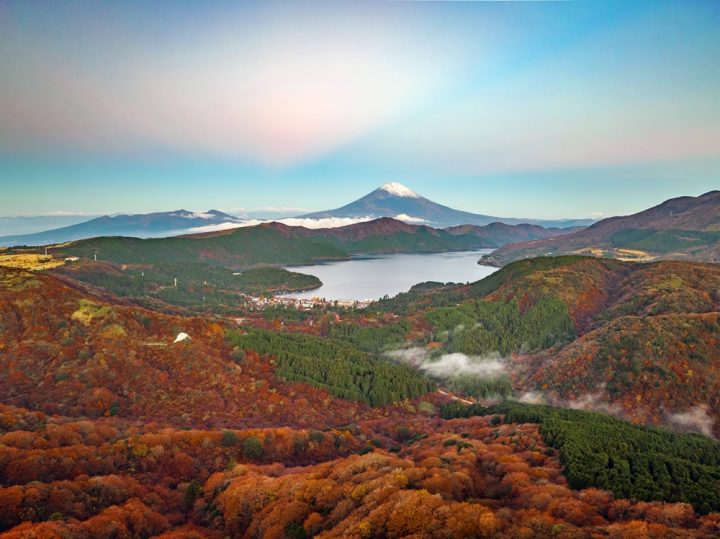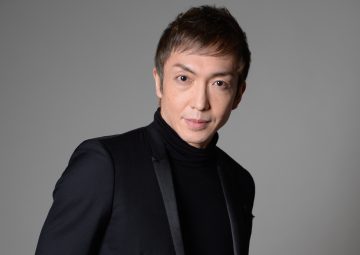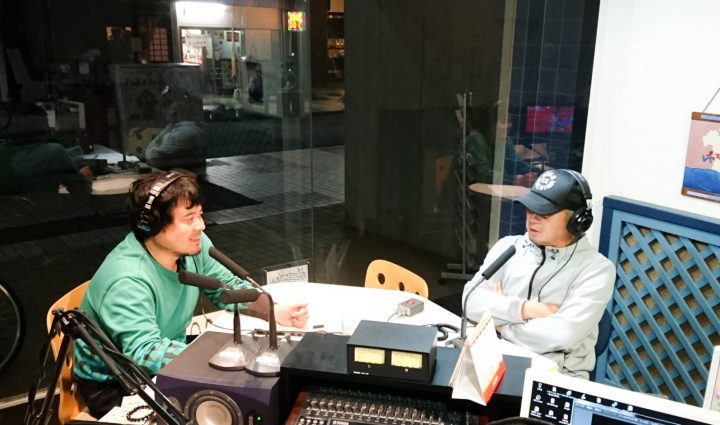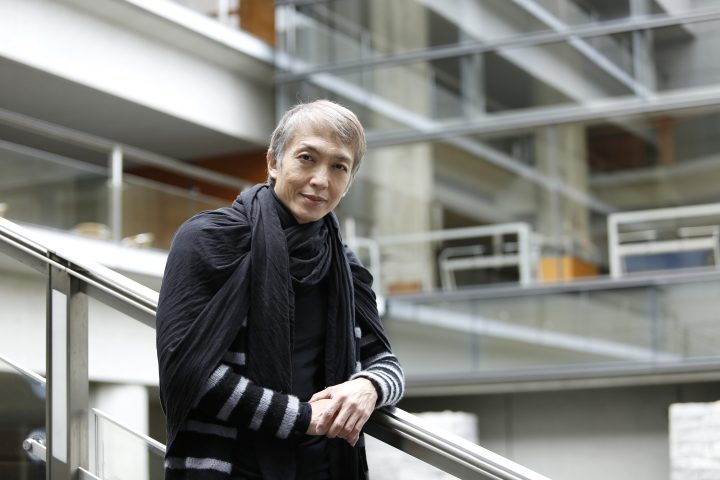Crazy Ken Band: Yokohama as Seen by Yokoyama Ken, Part 1

Crazy Ken Band (CKB), known as "the greatest sound machine in the Orient," delivers a wide range of sounds. Celebrating their 25th anniversary, the band continues to evolve, currently embarking on their nationwide tour, "CRAZY KEN BAND TOUR Jukage 2022-2023," promoting their 22nd album, "Jukage." When discussing Ken Yokoyama, the man who leads CKB and creates such a diverse range of music, the city of Yokohama is inseparable. Having lived in Yokohama through three eras—Showa, Heisei, and Reiwa—how does the city reflect in Yokoyama's eyes? How has the spirit of Yokohama blended into the music he creates? In the first half of this interview, Yokoyama shares his impressions of the ever-changing city of Yokohama, the influence Yokohama has had on CKB's music, and the story behind the creation of that classic song.
Honmoku, Yokohama: A gradation of change from Showa to Reiwa
── First of all, congratulations on the 25th anniversary of your formation. Please tell us how you feel now that you have reached this milestone.
Yokoyama : Thank you. Something happens in a band every three or four years. They might break up or something, but they don't last that long. I've never seen a band last for 25 years, so even I'm surprised (laughs).
── You have lived in Yokohama for three different eras, from the Showa era to the Heisei era to the Reiwa era. Please tell us about your impressions of Yokohama during each era. First of all, what was your impression of Yokohama as a child?
Yokoyama : Until I was about five years old, I lived in Hongo-cho, Honmoku, and along Honmoku Street, where the US military base was located. The base started around the time of the Yamate Police Station, and the left side became Area 1 and the right side became Area 2, and huge tracts of land were requisitioned. I still have vague memories of that scenery. When I was five, we moved to Hiyoshi in Kohoku Ward, and I thought that even though it was the same Yokohama, the scenery was completely different. Generally, when you think of Yokohama, you think of a port, but in reality, there are mountains, forests, the sea, and quite a lot of nature, which I found interesting.
-- Now, let's move forward a little bit. In 1997, CKB "suddenly emerged" (quoted from the CKB official website) in Honmoku. What was your impression of Yokohama at that time? How did it appear to you compared to your childhood?
Yokoyama : Yes, that's when we formed. By that time, the bases and such were long gone, but a few shops related to the time when the bases were still there remained. There's a place called "Golden Cup" that's still there, but there were even older ones, like "Italian Garden" and "VENICE," which had been around since the 50s. All of these places were demolished in 1997 to make way for apartments, or something like that. There was a bar called VFW for veterans of the US military, and "Italian Garden," which was in the basement, was our base. We held shows and parties at both "Italian Garden" and the VFW above. We used those places as hangouts even when there wasn't anything going on, so we fit in well in that environment, which still had a 50s-60s vibe. There were several bands performing there, and it was a gathering of all kinds of people, including members of the other bands and members I'd been playing with for a long time, so I thought, "Oh, I want to start a band with these members," and that's how CKB came about.
──It's amazing that it has continued for 25 years since then.
Yokoyama : That's right. At first, I didn't intend to do it in a permanent format, but I had a few job offers. I was approached about two projects, and I thought I'd finish it after just those two, but it ended up lasting for 25 years.
--I see! Next, please tell me about Yokohama today. I'm originally from Honmoku, and when I occasionally come back to my hometown from Tokyo, I'm surprised at how much has changed. I get the impression that areas like Honmoku and Minato Mirai have been changing recently, but what is your impression of Yokohama today, Yokoyama-san?
Yokoyama : For me, the changes were gradual, so it doesn't really feel like a sudden change, so it doesn't feel strange at all (laughs). There are a lot of people who have left for a while and suddenly returned, or who have returned after going abroad, but they're all surprised and say, "This isn't here, that isn't here." When I was a kid, there were streetcars running on Honmoku Street. There are no streetcars anymore, and there's no US military base. And there's not even a Mycal Honmoku. There's no subway. Well, some people feel there are all kinds of gaps, but if you've been there for a long time, you don't really notice.
--So, before you knew it, it seemed like little by little, things were disappearing and new things were being added in their place?
Yokoyama : That's right. I also lived in Tokyo for two years... well, only two years, from '78 to '80. I lived in Jingumae for one year, and then in Yoga in Setagaya for another year. I was only in Tokyo for two years. While I was in Tokyo, I heard a song by George Yanagi called "America Beyond the Fence," which is about Area 1 and Area 2. So I wanted to go back to Yokohama. I got homesick after two years (laughs).
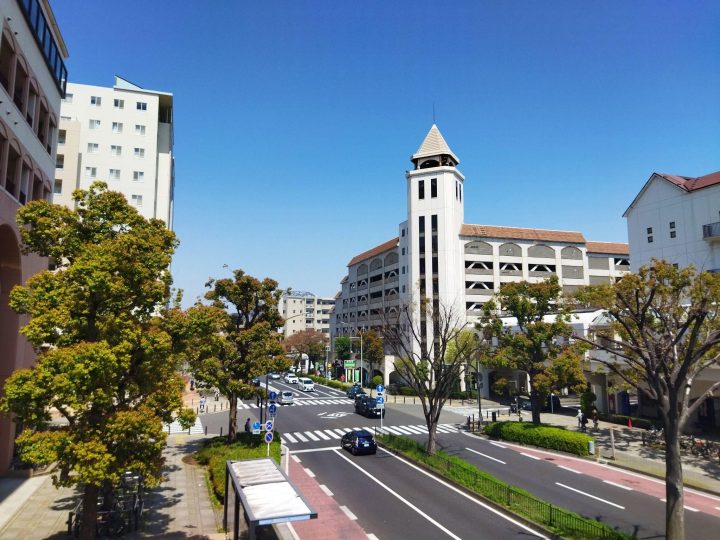
──So you moved back to Yokohama from Tokyo. Now that Yokohama has changed dramatically, what would be your favorite spot?
Yokoyama : My favorite thing right now is the lighthouse at the very tip of Honmoku Pier, known as the Symbol Tower. If you climb the hill there, you're closest to the sea. You can see Negishi Bay and all that, it's amazing. There's also a sea fishing facility next door. I love that area. It's a great place to walk the dog, and it's also great for sunbathing.
──That's wonderful. The sea breeze in Yokohama is really pleasant.
Yokoyama : Yes, the sea breeze. The hamakaze. Lots of people bring packed lunches. It's a great place to relax. We even had a concert there in 2009.
──While being blown by the sea breeze?
Yokoyama : It was like being blown by a strong wind. It even rained (laughs).
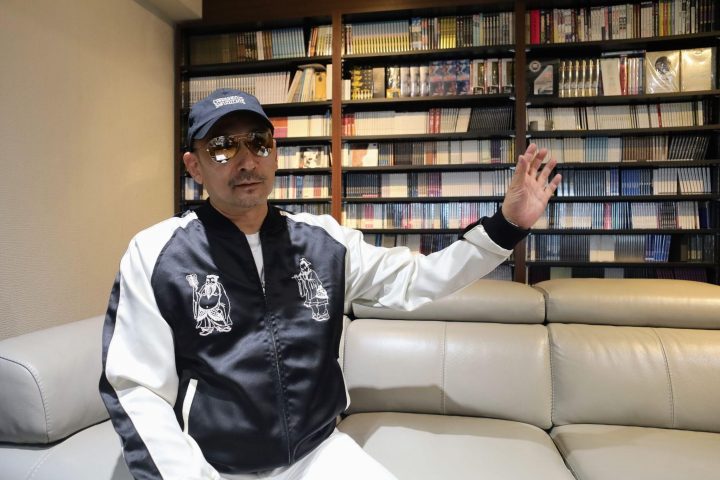
The story behind the birth of a famous phrase that was "pushed out by the magnetic field" in Kanagawa Prefecture
──CKB's lyrics often mention places related to Kanagawa Prefecture. There are even some jokes that would make locals chuckle, like the "Union shopping bag" (from "37℃").
Yokoyama : Yes, there are also names of pharmacies.
──There's even a pharmacy! How do you come up with ideas like that? Do they come to you when you're there, or do they come up later?
Yokoyama : I don't try to write lyrics about passing by there, but if it's Motomachi, then Motomachi comes to mind... from the melody. So I think of symbolic points for me at the time. Like the Motomachi Pool or the pharmacy. A pharmacy that sells imported goods, or in old terms, imported goods. Girls from Ferris and kids from international schools come shopping there. They buy Estée Lauder. I used to think, "Wow, those girls are so precocious," when I was a teenager (laughs). And then there's the Union. I like the cloth bags more than the Union paper bags. It was kind of trendy to always carry one around. There used to be a PR corner between the first and second floors of that Union, and they would advertise for bands there. There were also keyboards I really wanted, and I'd put up signs saying, "Please give this to this person." Or the English conversation school. There was the perk of being able to enter the housing on the US military base, so I wanted to go. My English didn't improve at all though (laughs).
──When you were talking about Motomachi, you said that the melody comes to you first, but is Kanagawa Prefecture influencing not only the lyrics but also the sound?
Yokoyama : That's right. Melodies come to mind when I'm driving or walking, and they already have a certain meaning or atmosphere. I think, "Oh, this is about Motomachi," and then I translate the melody into words. It feels like I'm translating the melody.
──So first the image comes to you as a melody, and then you translate it into words.
Yokoyama : Sometimes the melody comes first, but on the other hand, "Listen to me" in "Tiger & Dragon." That was when I was really driving. On National Route 16, there are several tunnels starting from Oppama. And after passing through the last tunnel, the ocean and the port of Yokosuka come into view. As I continued driving, the lyrics and melody came to me at the same time. They came to me at the same time up until the interlude, and then I headed straight for Mikasa Park. It's exactly like that, exactly like the lyrics.
──Is it unusual for lyrics and a melody like that to come to you at the same time?
Yokoyama : That's unusual. It's not all in one stroke. But catchy places often pop into my mind with a "ready, go, go" sound. And Kanagawa Prefecture is like... it's pushed out by a magnetic field. It has that mysterious, hot spring-like "sizzle, sizzle, sizzle" feeling (laughs). It has that gushing feeling.
──So you started to feel like saying, "Listen to what I have to say!" (laughs).
Yokoyama : I don't know why it was "Listen to me" either (laughs). The song was completed without me even deciding on the concept.
──That phrase was very popular among my friends at the time.
Yokoyama : Without that song, CKB wouldn't be what it is today, so it's a very symbolic and important song for us. And it's about Yokosuka. After all, Yokosuka is a city with the most tunnels in Japan, so I thought that there wouldn't be any tunnels in songs about Yokosuka, but... (Yamaguchi) Momoe's "Yokosuka Story" has a line about "steep slopes." Having lots of slopes is also a characteristic of Yokosuka and Yokohama. The sea and slopes.
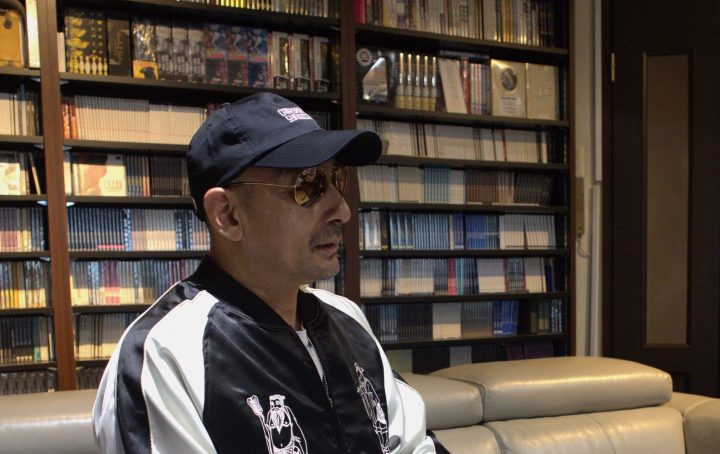
With occasional laughs, Yokoyama Ken talks about Yokohama in different eras. As he talks, vivid images of streetcars running through Honmoku, Italian gardens bustling with band members, and schoolgirls stopping by a pharmacy unfold before my eyes. This is the kind of thing you'd expect from the leader of CKB, who has produced so many hit songs with his rich expressiveness. In the first half of this interview, Yokoyama looks back on the charms and memories of Yokohama from his perspective, along with CKB's 25-year history. In the second half of the interview, we look at CKB's present and future, including their activities closely tied to the local community, their thoughts on their new album "Jukage," and their enthusiasm for the tour.
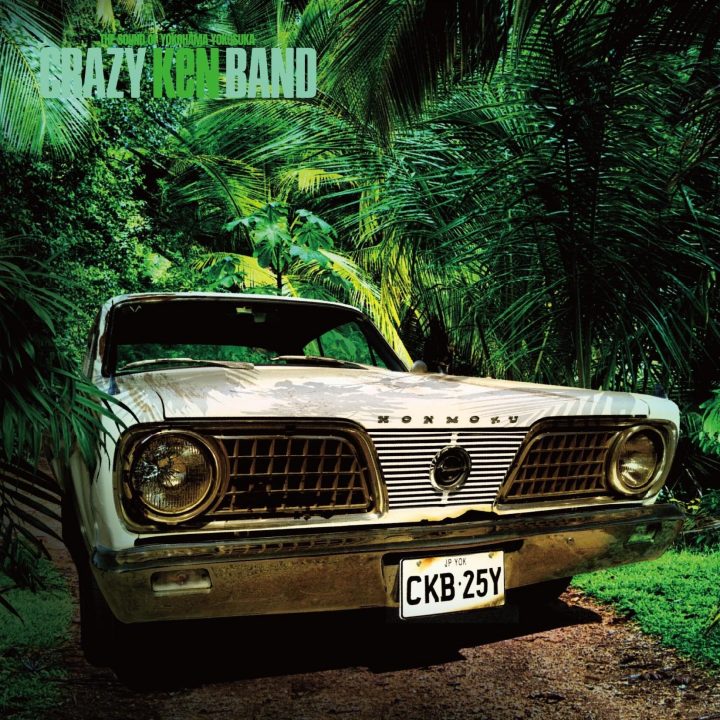
Ken Yokoyama
Born in July 1960 in Yokohama, Kanagawa Prefecture, he is the CEO of the music agency Double Joy Records. He formed Crazy Ken Band at Italian Garden in Honmoku in 1997 and has served as the band's lead vocalist ever since. In addition to releasing a wide variety of hit songs, he also writes songs for many artists. This year marks the 25th anniversary of his debut, and he is currently touring the country on the CRAZY KEN BAND TOUR Jukage 2022-2023, promoting his 22nd album, Jukage, which was released on August 3rd.
For more information, please visit the official website .
